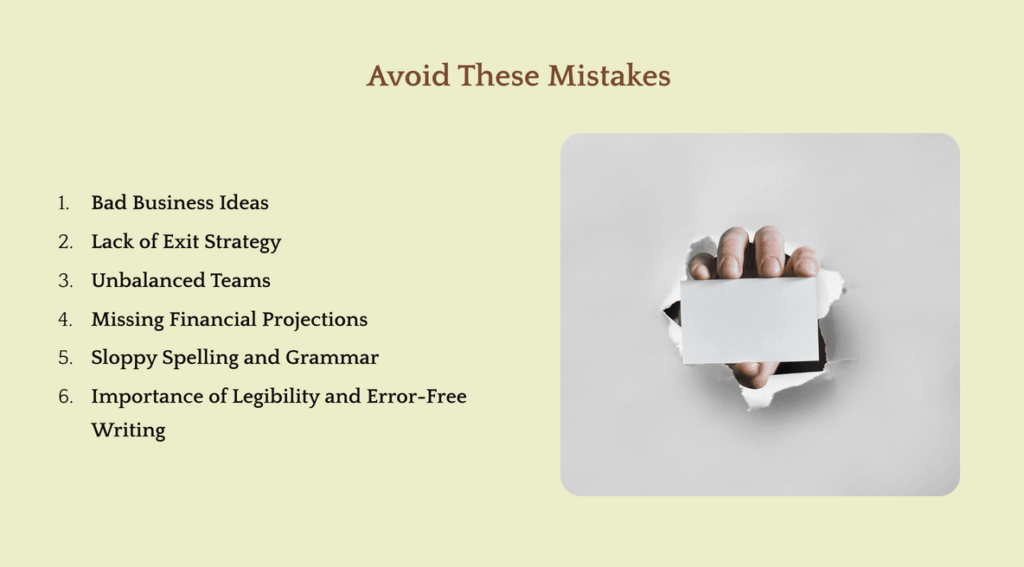

Quick Summary
Starting an online business plan is crucial for turning your digital ideas into reality. Whether you’re exploring online business plan examples or crafting your own business plan online, a clear strategy helps you stay focused and organized. From online boutique business plan to exploring new online business ideas, a strong plan guides your path to success. Studies show that a strong business plan can increase the likelihood of business growth by up to 30%, highlighting its importance for overall development. With the right business ideas and planning, you can confidently launch and grow your online venture.
Read More :- 8 Best Online Teaching Apps For Effective Online Classes

An online business plan is a written document that explains the structure, goals, and strategies of your business. It is similar to a traditional business plan but is specifically tailored for businesses that operate online.
This plan helps you:
To write an online business plan, start by defining your business idea, target audience, and goals. Then outline key sections including an executive summary, business description, market and competitive analysis, marketing strategy, financial plan, and operational details. Keep the plan concise, data-backed, and tailored for digital operations.
Read More:- How To Start A Dropshipping Business In 5 Easy Steps
Click Here For :- Free Online Business Plan Generator

To create a successful online business plan, you need to include the following key components:
| Section | Description |
|---|---|
| Executive Summary | The first and critical component of an online business plan is writing an executive summary. It summarizes your overall business plan as a whole and highlights the aspects that your business plan covers. |
| Business Description | The next component comes the business description. It provides a comprehensive account of your business and its products and services, audience, strategies, etc. It also includes your business experiences if any, such as collaborations, etc. |
| Market Analysis | This component aims to conduct a market analysis by researching and identifying the nature and details of your target customer base. This includes their geographical location, needs, demand, and demographics. |
| Marketing Strategy | This section of your online business plan includes information about your plans for marketing and selling products. It includes your marketing strategies, pricing policies, selling proposals, and market competition. |
| Financial Plan | This component gives detailed Information on your budget, costs, revenue projections, and funding needs. |
| Operational Plan | The final component of your online business plan describes the day-to-day operations of your business. |
Read More :- Top 15 Online Business from Home Ideas to Amplify Your Earnings
Creating an effective online business plan involves several critical steps. Below is a detailed breakdown, complete with examples and actionable tips to help you write a strong plan.
The executive summary is the first section of your business plan, but it should be written last. This is because it summarizes the entire plan in one or two pages.
If you’re starting an online clothing store:
“Our online clothing store, StyleSphere, focuses on eco-friendly, affordable fashion for young adults. We aim to reduce environmental impact by offering sustainable clothing options and plan to grow our revenue by 25% within the first year through targeted social media marketing.”
This section provides more details about your online business.
If you’re building an online fitness coaching platform:
“FitFlex is an online platform offering customized workout plans, virtual personal training, and wellness resources for busy professionals. Our focus on flexibility and affordability sets us apart from traditional gym memberships.”
To make your online business plan strong, you must research your market thoroughly.
If you’re launching a kids’ educational app:
“Our target audience is parents of children aged 5-10 years, primarily in Tier 1 and Tier 2 cities in India. The online education market in India is expected to grow by 17% annually, providing an ideal opportunity for our gamified learning platform.”
This section explains how your business is different from others in the market.
If you’re entering the online grocery delivery market:
“Competitors such as BigBasket and Grofers focus on metropolitan cities. Our platform, FreshFarm Delivery, will cater specifically to semi-urban and rural areas, offering fresher produce and affordable prices.”
Your marketing strategy outlines how you’ll attract and retain customers.
For a skincare product website:
“Our marketing strategy will focus on Instagram ads and collaborations with beauty influencers to reach women aged 18-35. Additionally, we’ll publish weekly blog posts on skincare tips to boost organic traffic through SEO.”
A strong online business plan must include financial projections.
If you’re starting a subscription box service:
“The initial setup cost is ₹5,00,000, which includes website design and sourcing products. Monthly expenses are estimated at ₹1,00,000, while projected revenue for the first year is ₹12,00,000 based on 500 subscribers paying ₹2,000 per month.”
This section describes how your business will function on a daily basis.
For a digital marketing agency:
“Our team will operate remotely, using tools like Trello for project management and Google Meet for client calls. Content creation and social media management will be handled in-house, while SEO audits will be outsourced.”
By following these steps, you can create an online business plan that not only outlines your vision but also attracts investors and ensures a solid foundation for success.


Using ready-made examples and free business plan template word can simplify the process of drafting your online business plan. Here’s how they can help and a few examples tailored for various online businesses:
Example:
Business Name: TrendyKart
Business Idea: An e-commerce platform selling affordable fashion for millennials.
Template Outline:
1. Executive Summary:
• Goal: To capture the millennial market in Tier 1 and Tier 2 cities with affordable, trendy clothing.
• Vision: To become India’s top affordable fashion destination.
2. Market Analysis:
• Target Audience: Young adults aged 18-30.
• Competitors: Myntra, Ajio.
• Opportunity: Increasing demand for affordable fast fashion.
3. Marketing Strategy:
• Channels: Instagram ads, influencer partnerships, and SEO blogs on fashion tips.
• Budget: ₹50,000 per month for digital marketing.
4. Financial Plan:
• Initial Cost: ₹2,00,000 (inventory and website development).
• Expected Revenue: ₹15,00,000 in the first year.
Tip: Use free tools like Canva to design professional pitch decks for investors.
Example:
Business Name: LearnEasy
Business Idea: A platform offering live and recorded classes for competitive exams.
Template Outline:
1. Executive Summary:
• Mission: To make quality education accessible to all students preparing for government exams.
2. Business Description:
• USP: Affordable pricing with expert-led live sessions.
• Revenue Model: Subscription-based.
3. Market Analysis:
• Competitors: Unacademy, Byju’s.
• Audience: Students aged 16-25 preparing for SSC, UPSC, and other exams.
4. Marketing Strategy:
• Focus on YouTube for free demos to attract leads.
• Collaborate with educational bloggers to boost visibility.
5. Operational Plan:
• Tools: Zoom for live classes, Thinkific for course hosting.
• Team: 5 educators and 2 customer support staff.
Tip: Offer free trials to gain user trust and feedback.
Example:
Business Name: DigiBoost
Business Idea: Offering digital marketing services for small Indian businesses.
Template Outline:
1. Executive Summary:
• Goal: To empower small businesses with affordable marketing solutions.
2. Market Analysis:
• Audience: Local businesses in India looking for online growth.
• Competitors: Freelance platforms like Fiverr and local agencies.
3. Services Offered:
• Social Media Management, Content Marketing, and SEO.
4. Marketing Strategy:
• LinkedIn outreach for B2B clients.
• Budget-friendly ad campaigns on Facebook.
5. Financial Plan:
• Initial Setup: ₹1,00,000 (website, software tools).
• Monthly Expenses: ₹25,000.
• Expected Revenue: ₹3,00,000 in the first 6 months.
Tip: Highlight your success stories or case studies on your website.
Example:
Business Name: ChicNest
Business Idea: A trendy online boutique selling minimalist and sustainable fashion for women aged 20–35.
Template Outline:
Tip: Offer first-time shopper discounts and use retargeting ads to bring visitors back.
Here are some free resources where you can download templates for your online business plan:

Other publications on online business plans would never tell you what we’re about to tell you: Your business plan may collapse.
You don’t want to waste time and effort, therefore avoid these typical mistakes:
We covered the essentials of an online business plan, including its significance and key tips for creating an effective plan for your e-business. In short:
Creating a well-structured online business plan is essential for any aspiring entrepreneur. Whether you’re using online business plan examples or building a tailored business plan online, having a clear roadmap ensures focused growth and efficient operations. Including key elements like market analysis, marketing strategies, and financial planning helps you anticipate challenges and seize opportunities. Remember, a strong business plan can boost your chances of success, making it a vital tool for sustainable growth. With solid online business ideas and a strategic approach, you’re well-equipped to launch and scale your online business confidently.
To create an online business plan, you should:
• Conduct market research to identify your niche.
• Define your business model.
• Identify your target audience.
• Decide on your products or services.
• Develop a strong brand identity.
• Create a marketing strategy.
• Plan your business operations.
• Develop a financial plan.
• Ensure legal compliance.
To start an online business:
• Identify a profitable niche.
• Conduct market research.
• Develop a business plan.
• Register your business and secure necessary licenses.
• Build an e-commerce website.
• Develop a marketing strategy.
• Launch your business and start promoting it.
Key tools include:
• Market research tools: Google Trends, Statista.
• Business plan software: LivePlan, Bizplan.
• Financial planning tools: QuickBooks, Xero.
• Marketing tools: Google Analytics, HubSpot.
• Legal tools: DocuSign, LegalZoom.
Laws to consider in India include:
• Business registration.
• Tax registration (GST).
• Compliance with IT Act 2000, Consumer Protection Act, etc.
• Data privacy regulations.
• Payment gateway compliance with RBI regulations.
Consider these key elements:
1. Understand your target market.
2. Define your unique value proposition.
3. Ensure scalability for future growth.
Types include:
1. Startup plan.
2. Internal plan.
3. Strategic plan.
4. Operational plan.
There’s no single “best” online business, as the ideal choice depends on individual skills, interests, and available resources. Some popular and profitable online business ideas include e-commerce (like dropshipping or print-on-demand), freelancing, online course creation, affiliate marketing, and content creation.
A comprehensive business plan typically includes seven key sections: an executive summary, company description, market analysis, competitive analysis, marketing plan, operational plan, and financial projections. These sections help outline the business idea, target market, competitive landscape, and financial goals.
The cost varies depending on the business type, registration fees, and legal expenses, typically ranging from a few thousand to several lakhs of rupees.
Read More :

Authored by, Samiksha Samra
Digital Content Writer
Samiksha is a writer with a passion for sharing ideas and a knack for detail. She loves turning concepts into meaningful, engaging content. With a strong background in research and content strategy, she crafts clear, easy-to-understand narratives that resonate with readers. Her curiosity drives her to explore new subjects, ensuring every piece she creates is both insightful and impactful.
Editor's Recommendations
Chegg India does not ask for money to offer any opportunity with the company. We request you to be vigilant before sharing your personal and financial information with any third party. Beware of fraudulent activities claiming affiliation with our company and promising monetary rewards or benefits. Chegg India shall not be responsible for any losses resulting from such activities.
Chegg India does not ask for money to offer any opportunity with the company. We request you to be vigilant before sharing your personal and financial information with any third party. Beware of fraudulent activities claiming affiliation with our company and promising monetary rewards or benefits. Chegg India shall not be responsible for any losses resulting from such activities.